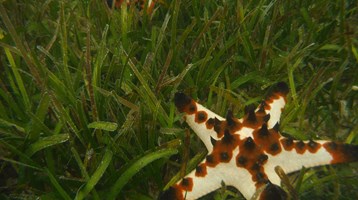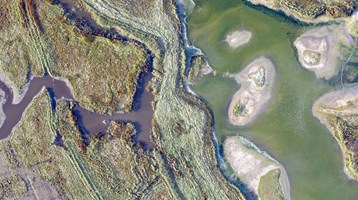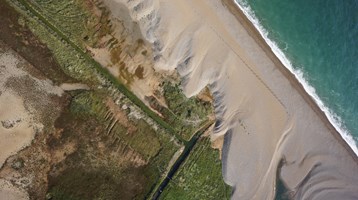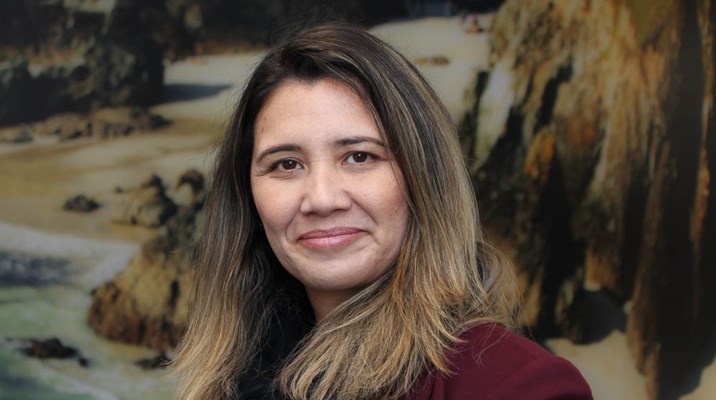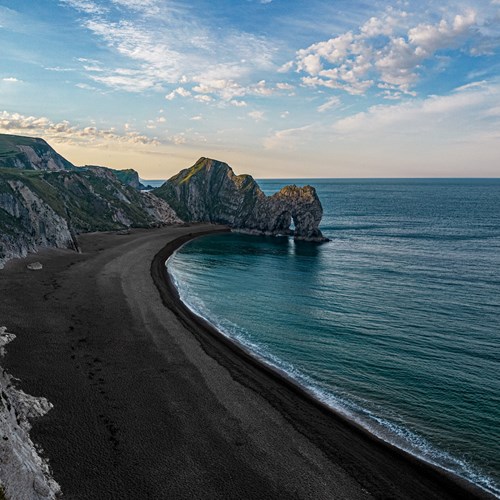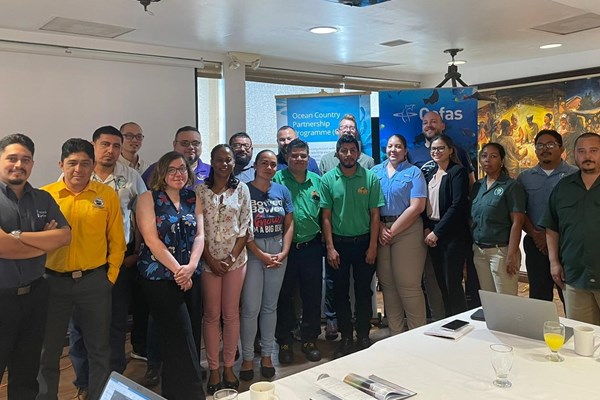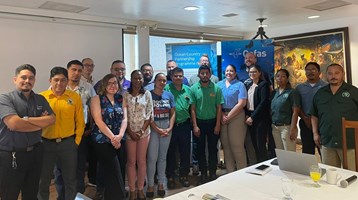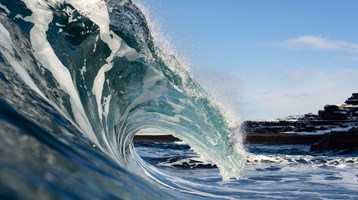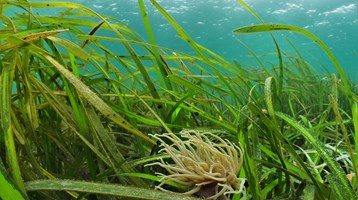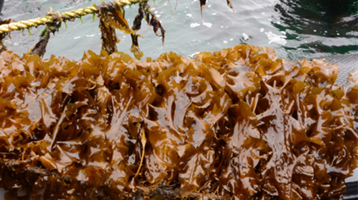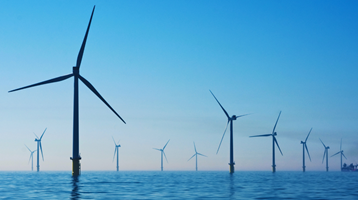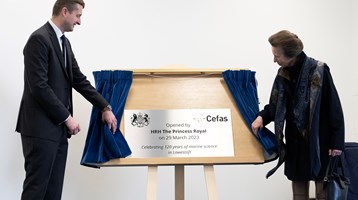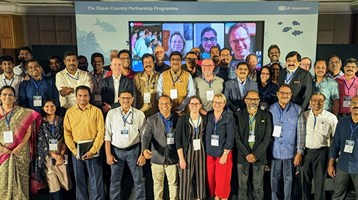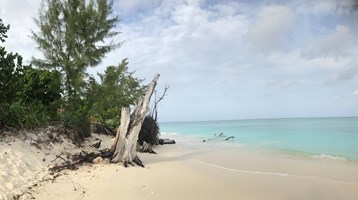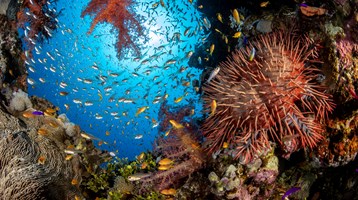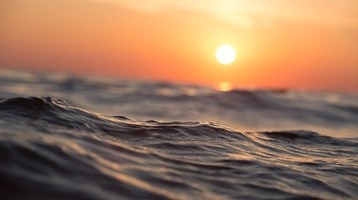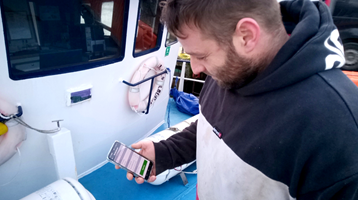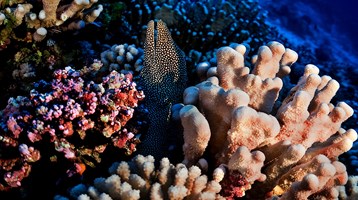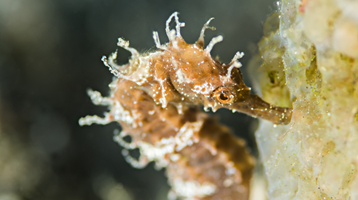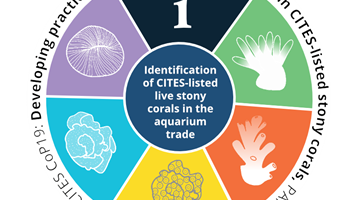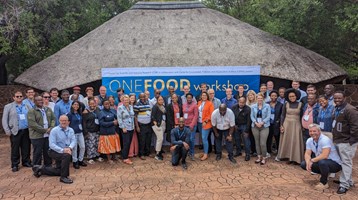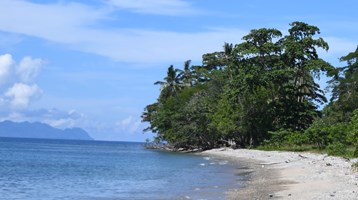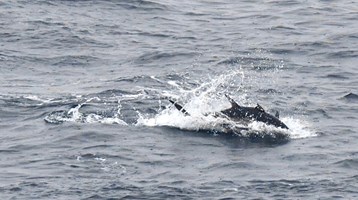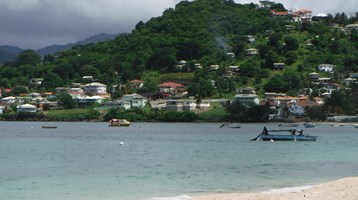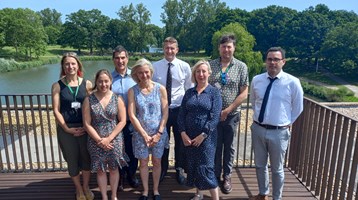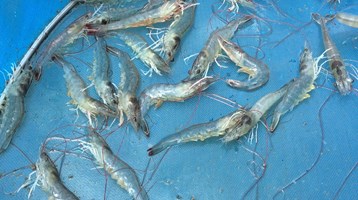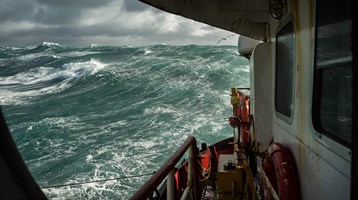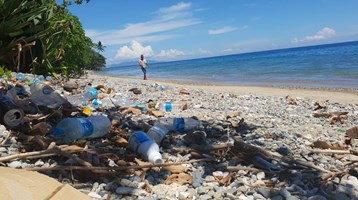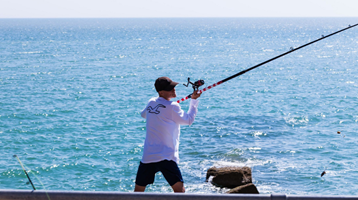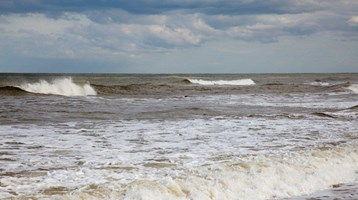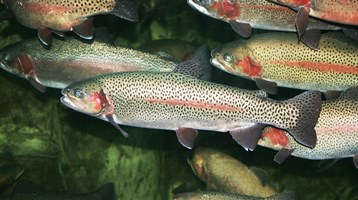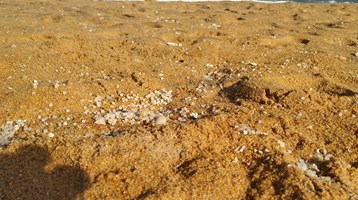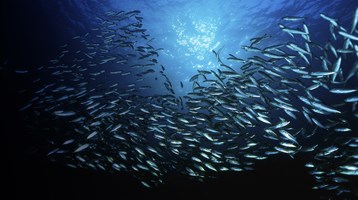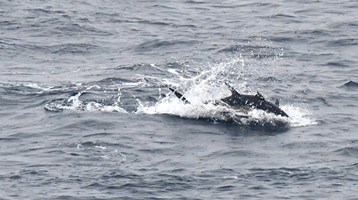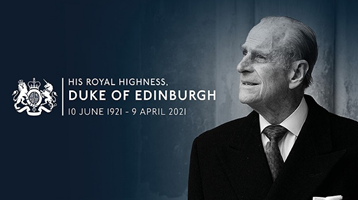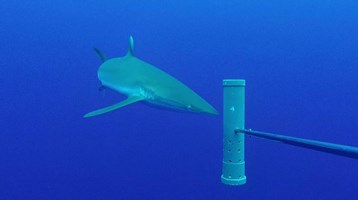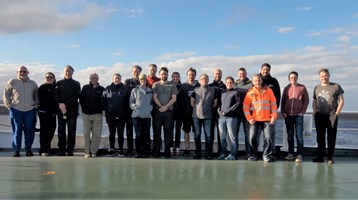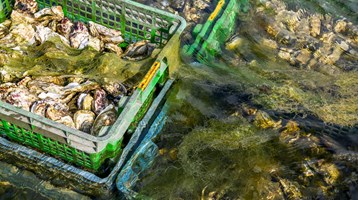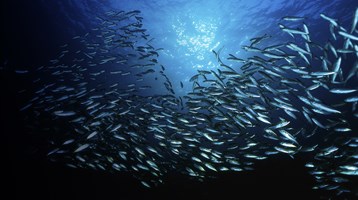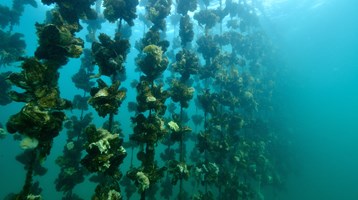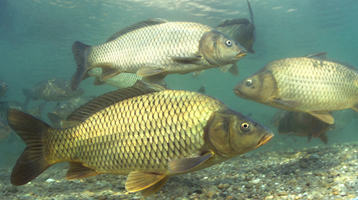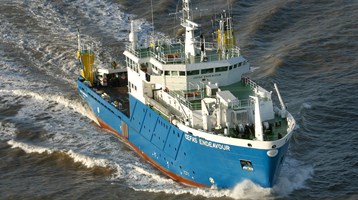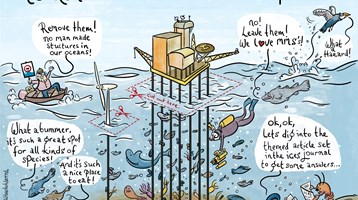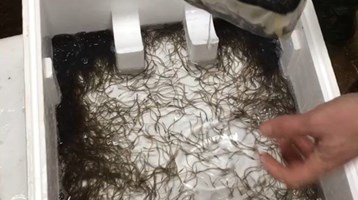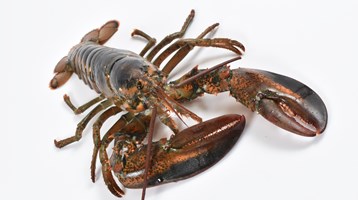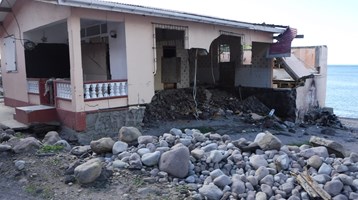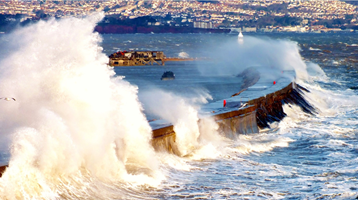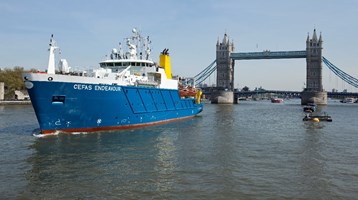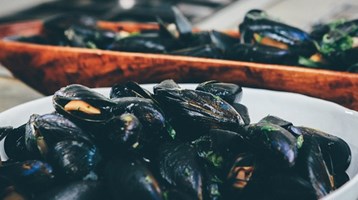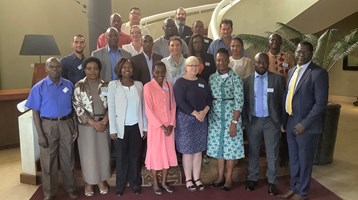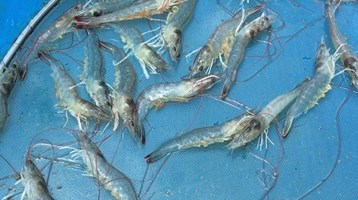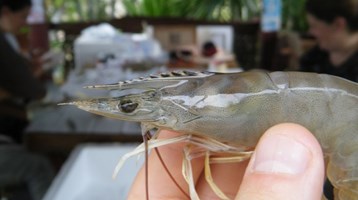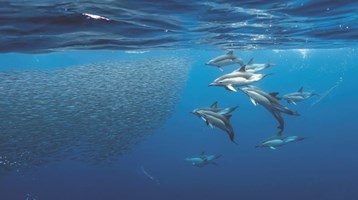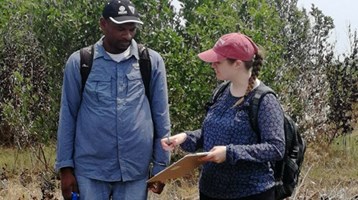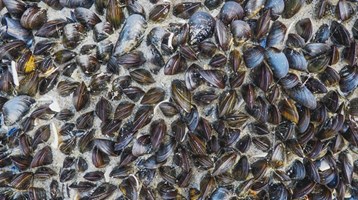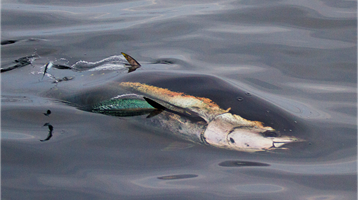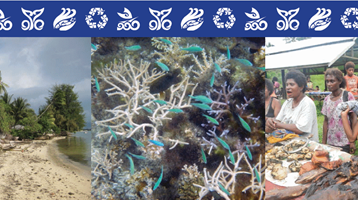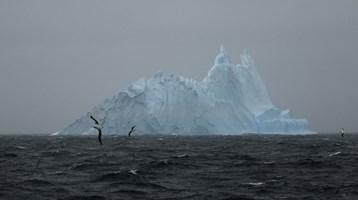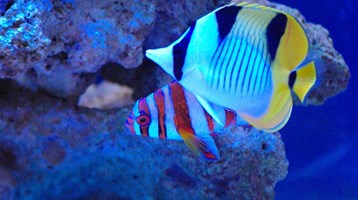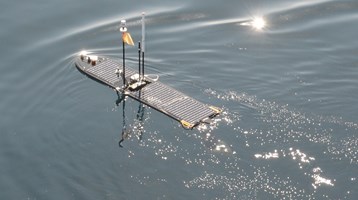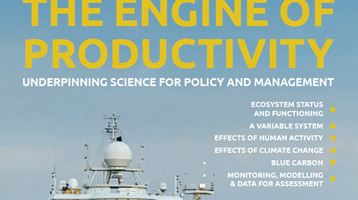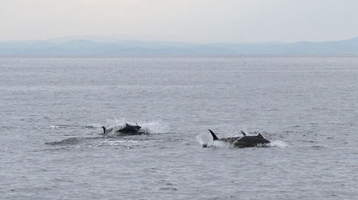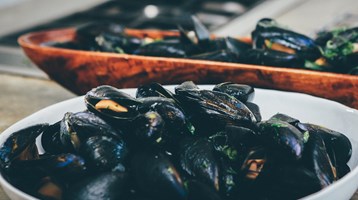Caribbean-UK partnership focuses on action on climate change impacts on Caribbean fisheries
30 March 2021
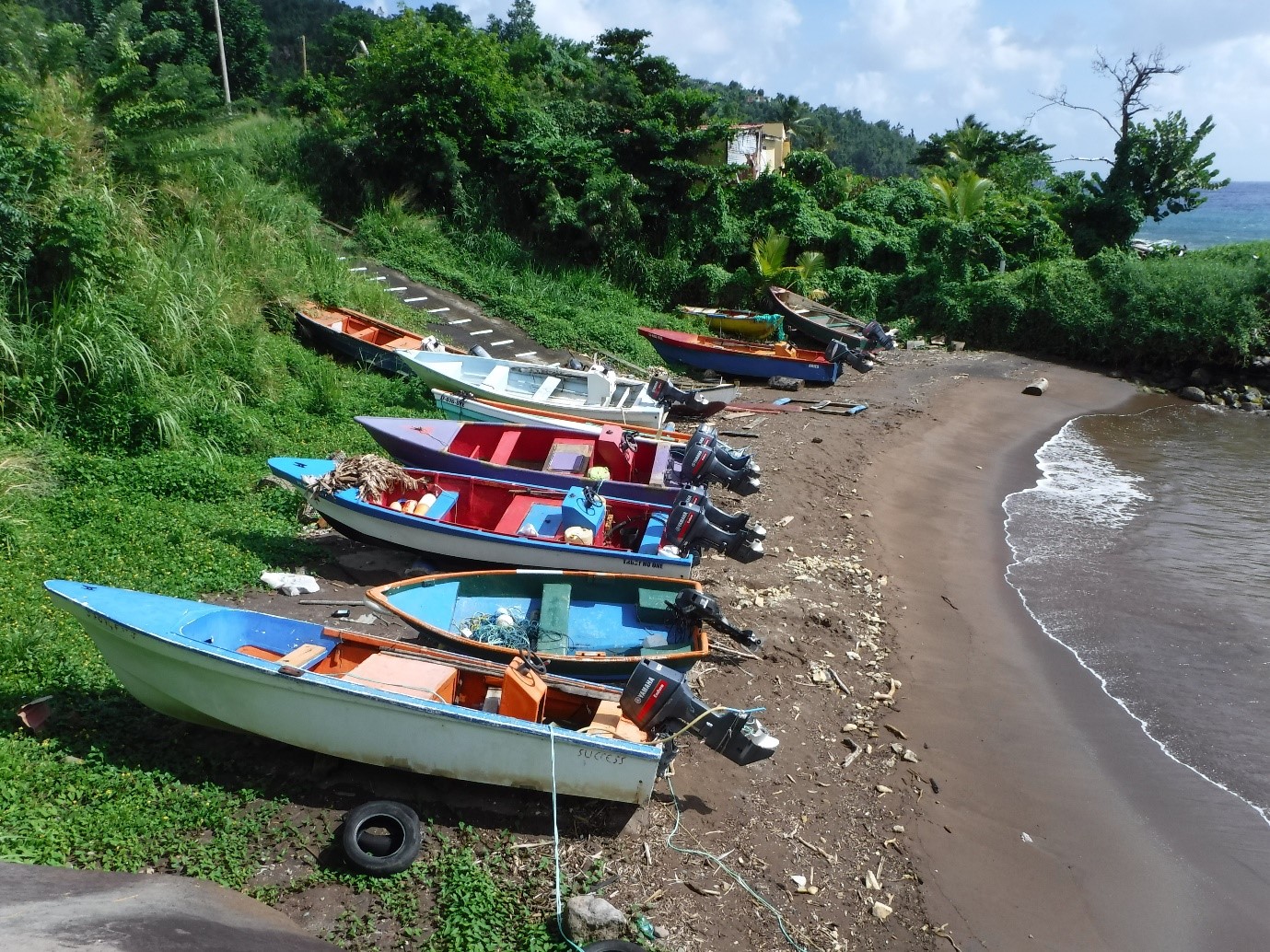
Across the world, there is widespread recognition of a climate emergency and the Caribbean is likely to be greatly affected by the impacts of climate change, including on Caribbean fisheries. The Climate Change Adaptation for Caribbean Fisheries report card, published today, explores these impacts. Experts in the Caribbean and scientists in the United Kingdom have joined together to publish recommendations on short-term actions and long-term goals, so that Caribbean fisheries and aquaculture can adapt to climate change.
Following on from the Caribbean Marine Climate Change Report Card, which described the full effects of climate change on the coasts and seas of the Caribbean, the new report card describes how adaptation actions can improve the resilience of the marine environment, and the livelihoods of fishers and coastal communities. The card is accompanied by a longer supporting document, which provides further evidence for the benefits of adaptation for people and environments.
Fisheries in the Caribbean are critical for culture, food and livelihoods, and climate change poses huge threats to this, by impacting the marine environment that fish depend upon, and the safety of fishers and coastal communities. More intense storms, floods, droughts, rising sea levels, higher temperatures, and ocean acidification will exacerbate the threats to Caribbean people, economies and marine and coastal ecosystems. Designed in an accessible format, the report card describes projects which are already underway in the region to tackle climate change impacts, and further measures which can be taken to ensure that fisheries and aquaculture remain resilient in the future.
The report card describes actions which can be taken by fisherfolk so that individuals and communities can drive the development of climate-smart fisheries through “no-regret actions”. These actions can save money, increase income and improve safety even if the worst impacts of climate change do not come to pass. It also describes longer term goals that marine managers and policy makers can take to create a more sustainable fisheries sector and healthy marine and coastal environment.
The report card is a result of collaboration between the Caribbean Regional Fisheries Mechanism (CRFM), the Caribbean Community Climate Change Centre (CCCCC), the UK’s Centre for Environment, Fisheries and Aquaculture Science (Cefas), and the Food and Agriculture Organisation of the United Nations (FAO).
Most Caribbean States have fisheries that are highly vulnerable to climate change. They are not only highly exposed to the physical hazards but also have small population sizes and their economies are highly dependent on marine resources.
The report card acknowledges that there is already much work underway in the Caribbean to address climate change, but the issue is so urgent that sustained attention and research is required. This report card suggests an action list for Caribbean states to cooperate and act on, emphasising the need to include communities and stakeholders at every step of the way
Short and long term actions recommended in the report card include:
• Improving safety at sea and disaster preparedness
• Improving sustainability of fisheries
• Diversifying incomes
• Improving the health of the marine environment
• Improving adaptive capacity
• Reducing carbon emissions
The CRFM Executive Director, Milton Haughton said, “this report card is another milestone on the long journey towards building greater community resilience and adaptive capacity, and reducing vulnerabilities of fishing communities in the Caribbean to the negative impacts of climate change. We are pleased to be associated with this very important collaborative initiative and look forward to continuing the partnership with the UK experts in addressing this existential challenge.”
Dr Bryony Townhill, lead co-ordinator of the Climate Change Adaptation for Caribbean Fisheries report card and Climate Change Scientist at Cefas said:
“The report card seeks to bring together all of the information needed to take action, both locally by fisherfolk on the ground, and at a wider scale by policy makers. We hope that fishers, aquaculturalists, marine managers and policy makers will use the card to plan ahead and ensure that fishing remains a sustainable livelihood for the region well into the future.”
The initiative was funded by the UK Government as part of the Commonwealth Marine Economies Programme (CME Programme).
Related to this article
News
Further Reading


Working for a sustainable blue future
Our Science


